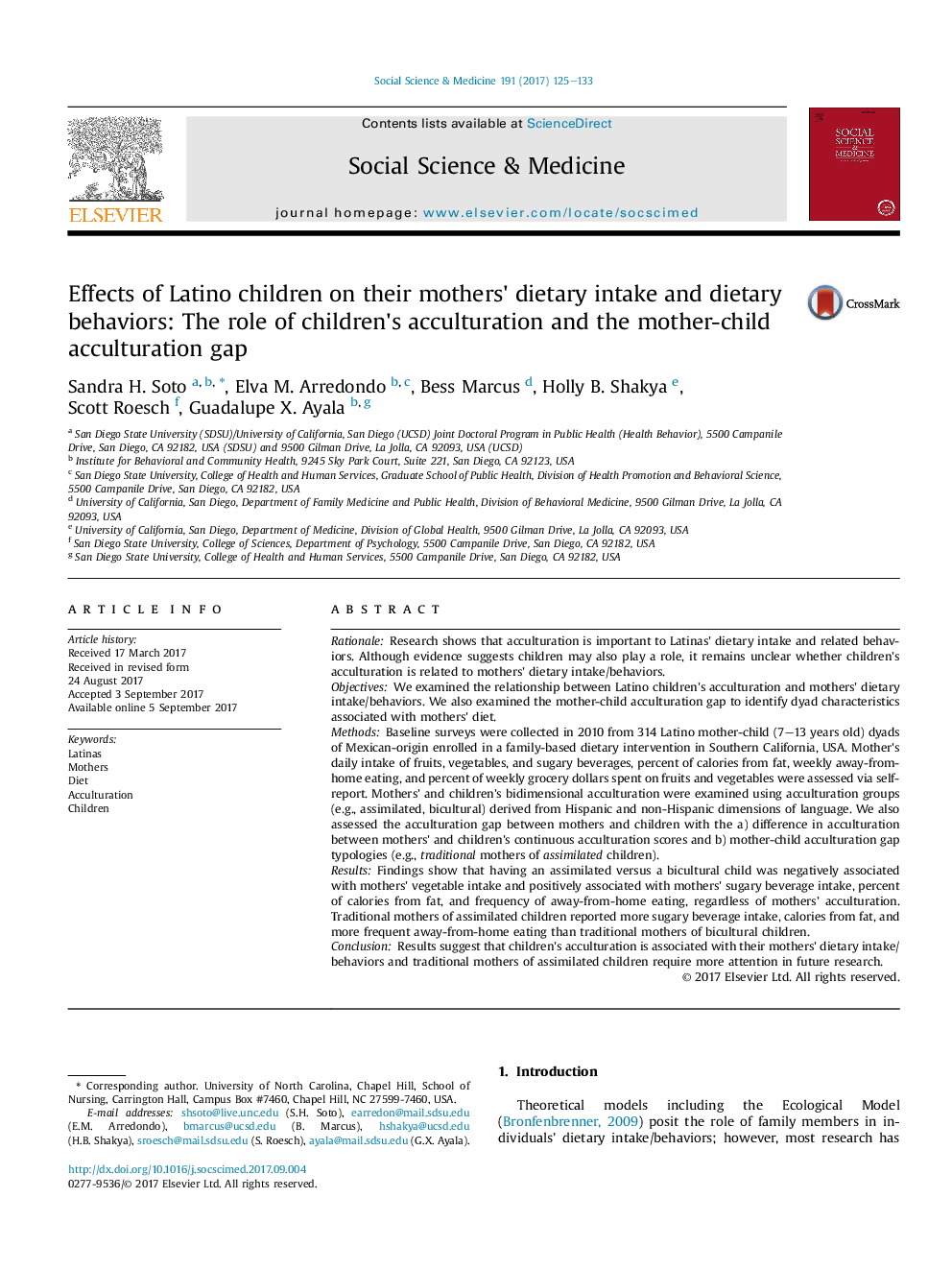| کد مقاله | کد نشریه | سال انتشار | مقاله انگلیسی | نسخه تمام متن |
|---|---|---|---|---|
| 5046296 | 1475978 | 2017 | 9 صفحه PDF | دانلود رایگان |
- We modeled associations between children's acculturation and Latina mothers' diet.
- Mothers of assimilated versus bicultural children had a low diet quality.
- Culturally traditional mothers of assimilated children had the lowest quality diet.
- Future work should consider the role of children and culture on adult Latinas' diet.
RationaleResearch shows that acculturation is important to Latinas' dietary intake and related behaviors. Although evidence suggests children may also play a role, it remains unclear whether children's acculturation is related to mothers' dietary intake/behaviors.ObjectivesWe examined the relationship between Latino children's acculturation and mothers' dietary intake/behaviors. We also examined the mother-child acculturation gap to identify dyad characteristics associated with mothers' diet.MethodsBaseline surveys were collected in 2010 from 314 Latino mother-child (7-13 years old) dyads of Mexican-origin enrolled in a family-based dietary intervention in Southern California, USA. Mother's daily intake of fruits, vegetables, and sugary beverages, percent of calories from fat, weekly away-from-home eating, and percent of weekly grocery dollars spent on fruits and vegetables were assessed via self-report. Mothers' and children's bidimensional acculturation were examined using acculturation groups (e.g., assimilated, bicultural) derived from Hispanic and non-Hispanic dimensions of language. We also assessed the acculturation gap between mothers and children with the a) difference in acculturation between mothers' and children's continuous acculturation scores and b) mother-child acculturation gap typologies (e.g., traditional mothers of assimilated children).ResultsFindings show that having an assimilated versus a bicultural child was negatively associated with mothers' vegetable intake and positively associated with mothers' sugary beverage intake, percent of calories from fat, and frequency of away-from-home eating, regardless of mothers' acculturation. Traditional mothers of assimilated children reported more sugary beverage intake, calories from fat, and more frequent away-from-home eating than traditional mothers of bicultural children.ConclusionResults suggest that children's acculturation is associated with their mothers' dietary intake/behaviors and traditional mothers of assimilated children require more attention in future research.
Journal: Social Science & Medicine - Volume 191, October 2017, Pages 125-133
